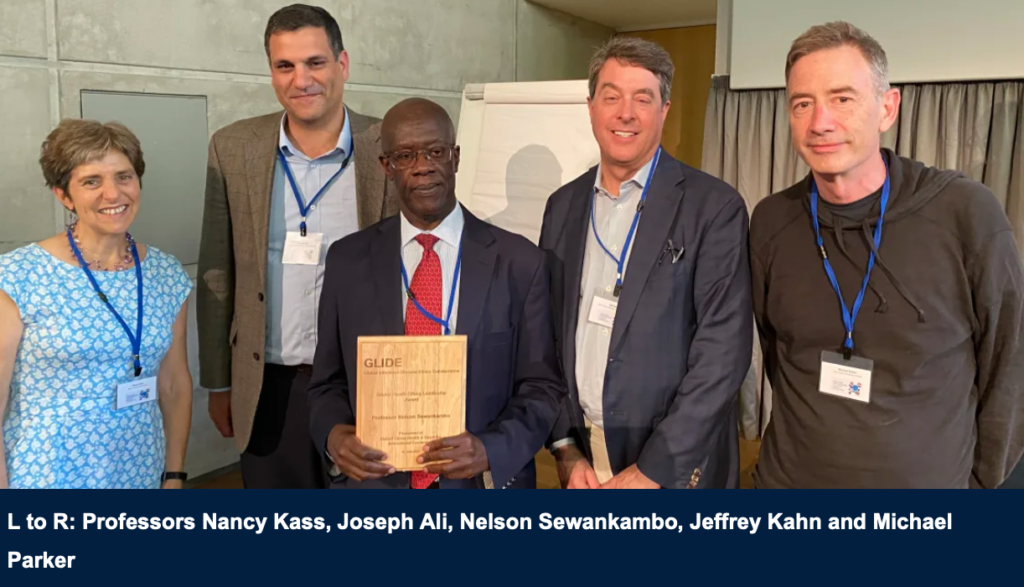GLIDE Recognizes Nelson Sewankambo for Outstanding Work in Global Bioethics

Professor Nelson Sewankambo was presented with the inaugural biannual GLIDE Global Health Ethics Leadership Award in recognition of his outstanding contribution in the field of global bioethics.
In the early 1980s Professor Sewankambo was one of the first physicians in Uganda to recognise HIV/AIDS as a new disease. In addition to his leadership in HIV/AIDS research, Professor Sewankambo has devoted much of his professional attention to the advancement of medical and bioethics education, research, and service in Uganda and the African continent. He helped build the research capacity strengthening consortium (THRiVE) which involved seven African institutions and two universities in the UK, and provided leadership for the Initiative for Strengthening Research Capacity in Africa (ISHReCA).
In presenting the award at the Global Health and Bioethics International Conference on 28 June, Professor Joseph Ali, of the Berman Institute of Bioethics, said:
‘Professor Sewankambo is a visionary who has paved the way for bioethics to flourish in Uganda and across Africa through regional and global partnerships. He has long-recognised that the work of bioethics requires not only individual passion, but also deep commitment and coordination within and across institutions. His efforts have inspired countless researchers, practitioners, and organisations to direct their attention to the goal of strengthening bioethics systems and answering critical bioethics questions for the benefit of society.’
Professor Sewankambo is a director of the NIH Fogarty-funded Makerere International Health Research Ethics Master’s Training Programme, the Makerere University International Bioethics Doctoral Research Training Programme, and the Fogarty African Bioethics Consortium-Postdoctoral Fellowship programme. He is also a key member of the International Expert Network for the Oxford-Johns Hopkins Global Infectious Disease Ethics (GLIDE) Collaborative.